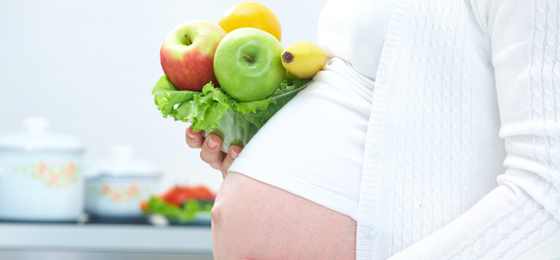- MENU
- HOME
- SEARCH
- WORLD
- MAIN
- AFRICA
- ASIA
- BALKANS
- EUROPE
- LATIN AMERICA
- MIDDLE EAST
- United Kingdom
- United States
- Argentina
- Australia
- Austria
- Benelux
- Brazil
- Canada
- China
- France
- Germany
- Greece
- Hungary
- India
- Indonesia
- Ireland
- Israel
- Italy
- Japan
- Korea
- Mexico
- New Zealand
- Pakistan
- Philippines
- Poland
- Russia
- South Africa
- Spain
- Taiwan
- Turkey
- USA
- BUSINESS
- WEALTH
- STOCKS
- TECH
- HEALTH
- LIFESTYLE
- ENTERTAINMENT
- SPORTS
- RSS
- iHaveNet.com: Women's Health

by Monica Gullon
Packing on pounds is necessary during pregnancy -- and intimidating. Here's a nutritionist's rundown of how you should eat and why
Eating well during pregnancy is one of the best things you can do for your growing baby. But it can also be a source of anxiety, according to Melissa Dobbins, a spokeswoman for the Academy of Nutrition and Dietetics and prenatal nutrition coordinator at the Centers for Maternal and Fetal Health at NorthShore University HealthSystem in Evanston, Ill.
"We spend our whole lives avoiding weight gain. Yet during pregnancy, we must gain weight healthfully," says Dobbins. "It's kind of freaky for a lot of women."
Here's how to eat right.
Best Pregnancy Diet: First Trimester
Having a hard time keeping food down due to morning sickness? Relax; your body doesn't need any additional calories yet. But you do need to consume more of the following vitamins:
Folic acid (also known as folate)
Which is a B-vitamin that's essential in the first 12 weeks of pregnancy to avoid birth defects. Boost your folate intake by eating extra foods like lean beef, legumes, spinach, whole grains, and pumpkin and sesame seeds.
Iron
Which supports your baby's growth and makes more blood to circulate in your bodies. Get it in iron-rich foods, like asparagus, avocados, broccoli, citrus, and fortified breads and cereals.
The American Congress of Obstetricians and Gynecologists also recommends that pregnant moms get 0.4 milligrams of folic acid and 27 mg of iron daily in a prenatal vitamin.
Best Pregnancy Diet: Second Trimester
Now is the time to eat more, but you only need about 300 additional calories per day. Make sure they're nutrient-dense, advises Dobbins. It's easy to do, she says, when you add one of these mini-meals daily:
- 1 1/2 cups 2 percent milk + 4 graham cracker squares
- 1 1/2 tablespoons peanut butter + 2 slices whole-grain bread
- 6 ounces yogurt + 1/2 cup granola
- 6 tablespoons hummus + 1 6-inch whole-grain pita
- 1 ounce almonds (about 24) + 1/3 cup raisins
- 1 medium-baked potato + 1 ounce low-fat cheese + 1 cup steamed broccoli
Your calcium needs are the same as when you're not pregnant: 1,000 mg per day, or equivalent to three servings of dairy in your pregnancy diet. Don't skimp on these. Calcium is essential to your baby's developing skeletal system and your own bone health.
Omega-3 fatty acids
Are critical to the growth of your baby's brain and nervous system. The best source of this nutrient is fish, but many women shy away from it due to fear of mercury poisoning. However, it is safe to eat up to 12 oz a week of canned light tuna, salmon, pollock and catfish. You can also get omega-3 fatty acids in your pregnancy diet from walnuts, walnut oil, canola oil, flaxseeds and tofu.
Best Pregnancy Diet: Third Trimester
Your weight gain will start to slow down, and from now on most of it will go toward the baby. You need to up your calorie intake by an additional 100 calories, for a total of about 450 calories more than you were eating before pregnancy.
As the baby grows, you may experience stomach discomfort. Avoid heartburn by eating three small meals and three snacks per day. Eating foods that are high in fiber (like legumes and whole grains) and staying hydrated can help with constipation. The iron in your pregnancy multivitamin may worsen constipation; if the problem becomes severe, talk to your doctor about changing your vitamin formulation.
Article: Copyright ©, Studio One Networks. All rights reserved.
Women's Health: Best Pregnancy Diet: Are You Gaining Weight the Right Way?